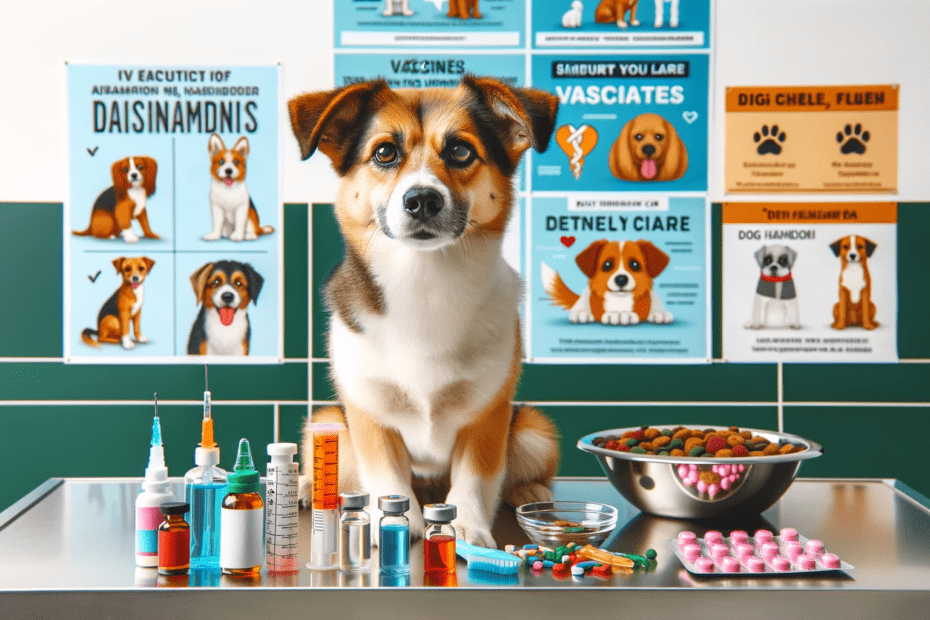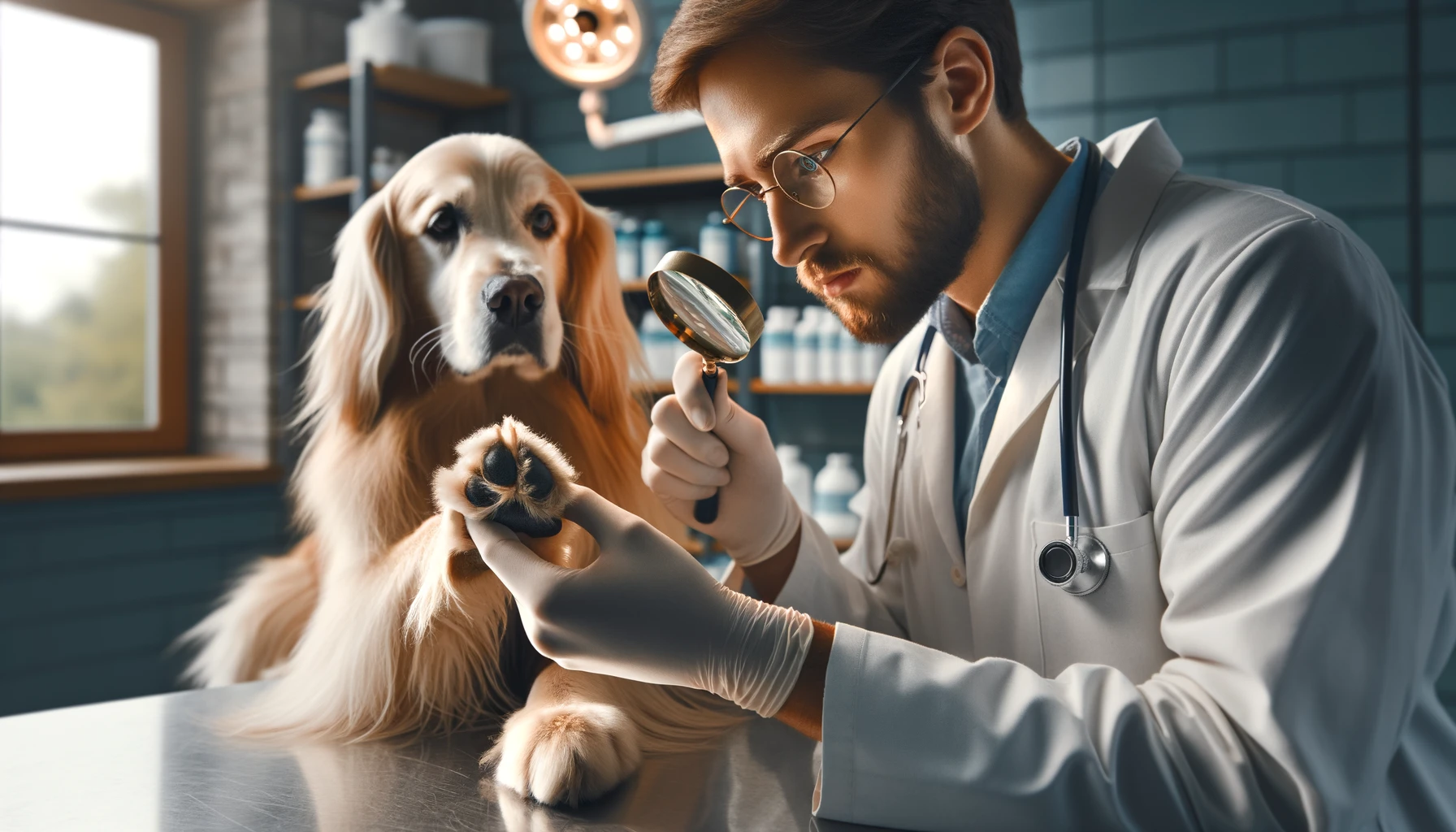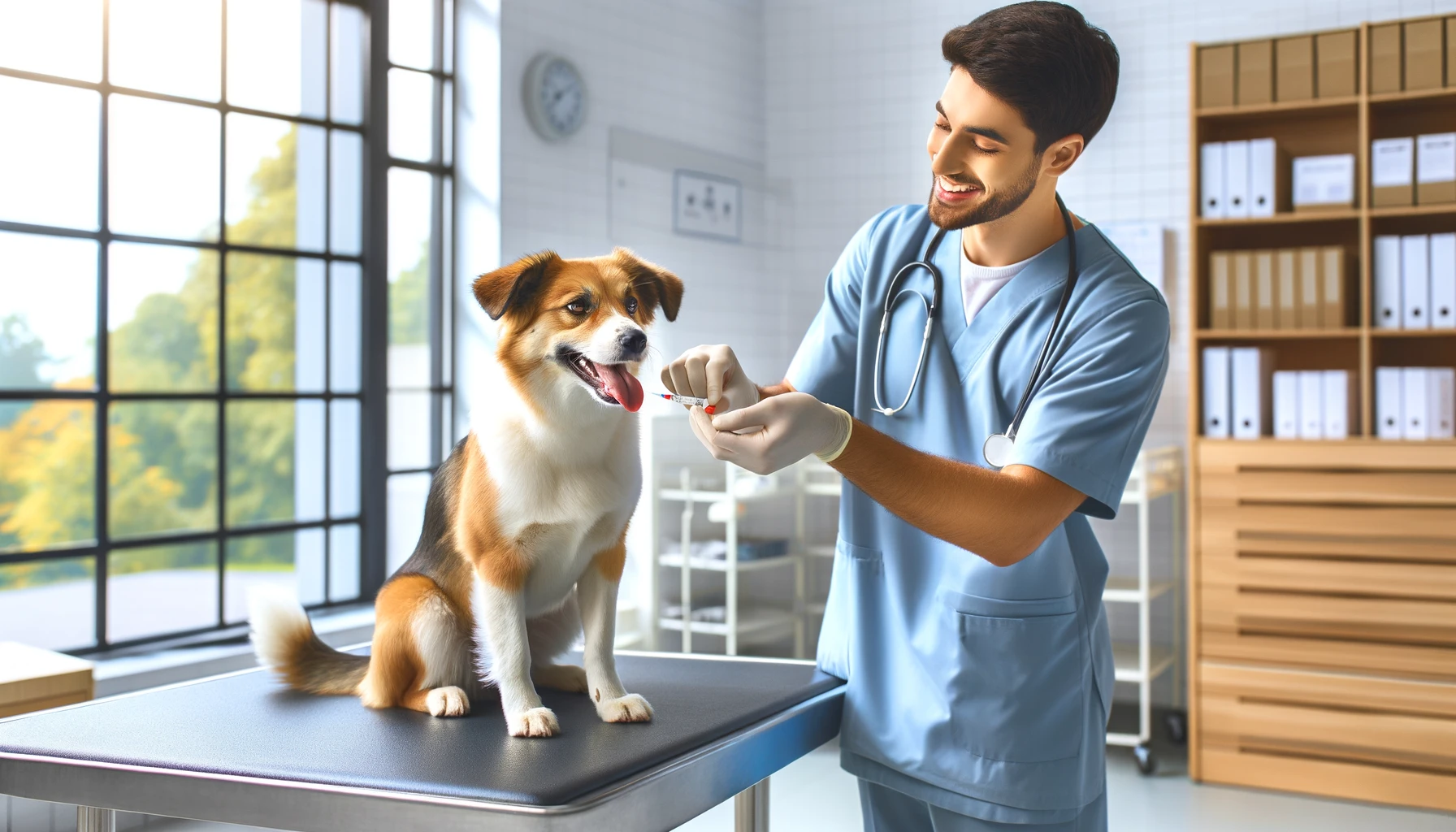Are you wondering why preventive measures matter for your furry friend's health? It's simple: they can save lives.
By staying up to date on vaccinations, scheduling regular check-ups, providing proper nutrition, ensuring exercise and physical activity, preventing parasites, maintaining dental care, spaying/neutering, and detecting diseases early, you can give your dog the best chance at a long and healthy life.
Don't wait until it's too late – take action now to protect your beloved canine companion.
Key Takeaways
- Vaccinations and regular check-ups are crucial for preventing diseases and ensuring a dog's overall health.
- Providing a balanced diet with the right nutrients is essential for a dog's growth, weight management, and overall well-being.
- Regular exercise and mental stimulation are important for maintaining a healthy weight and preventing behavioral problems.
- Preventing parasites through regular flea control and deworming is necessary to avoid infestations and related health issues.
Vaccinations
Vaccinations protect your dog's health. Canine immunizations are of utmost importance when it comes to safeguarding your furry friend against various diseases. These pet vaccinations work by stimulating your dog's immune system to produce antibodies, providing them with immunity against specific diseases. By ensuring that your dog is up to date with their vaccinations, you can significantly reduce the risk of them contracting serious and potentially life-threatening illnesses.
The importance of pet vaccinations can't be overstated. Vaccines help prevent diseases such as distemper, parvovirus, hepatitis, and rabies, which can be fatal to dogs. These diseases are highly contagious and can spread rapidly among dogs. Vaccinating your dog not only protects them but also helps in maintaining the overall health and well-being of the canine community.
Regular vaccinations are crucial, especially for puppies, as their immune systems are still developing and they're more susceptible to infections. Starting vaccinations at the appropriate time and following the recommended schedule ensures that your dog receives the necessary protection.
It is important to consult with a veterinarian who can provide guidance on the best vaccination plan for your dog. They'll consider factors such as your dog's age, lifestyle, and risk of exposure to certain diseases to determine the most suitable immunization schedule.
Regular Check-Ups
To ensure the overall well-being of your dog, it's essential to prioritize regular check-ups with a veterinarian, in addition to vaccinations. Regular check-ups play a crucial role in preventing illnesses and maintaining optimal health for your furry friend.
Here are three reasons why regular check-ups are important for your dog:
- Early Detection: Regular check-ups allow veterinarians to identify any potential health issues before they become more serious. Through physical examinations and diagnostic tests, veterinarians can detect problems such as heart conditions, dental diseases, and cancer at an early stage when they're more treatable.
- Vaccination Updates: During regular check-ups, veterinarians can ensure that your dog's vaccinations are up to date. Vaccinations protect your dog against various diseases, including rabies, distemper, and parvovirus. Keeping your dog's vaccinations current is vital for their overall health and helps prevent the spread of contagious diseases.
- Preventive Care: Regular check-ups also provide an opportunity for preventive care, such as parasite control and dental cleanings. Parasite prevention, including flea and tick control, is essential for your dog's well-being. Dental cleanings help maintain good oral hygiene and prevent dental diseases, which can lead to other health issues.
Proper Nutrition
Ensuring your dog receives proper nutrition is crucial for their overall health and well-being. Providing them with a balanced diet is essential to support their growth, maintain a healthy weight, and prevent various health issues. The quality of the dog food you choose plays a significant role in their nutrition.
A balanced diet for dogs should consist of high-quality protein, healthy fats, carbohydrates, vitamins, and minerals. Protein is necessary for muscle development and repair, while fats provide energy and support healthy skin and coat. Carbohydrates supply the necessary fuel for daily activities. Vitamins and minerals are essential for the proper functioning of organs and immune system.
When selecting dog food, it's important to read the labels to ensure it meets the nutritional requirements for your dog's age, breed, and activity level. Avoid foods that contain fillers, artificial preservatives, and excessive amounts of additives. Additionally, consult with your veterinarian to determine the appropriate portion size and feeding schedule for your dog.
Exercise and Physical Activity
Regular exercise and physical activity are crucial for your dog's overall health and well-being. Not only does it provide numerous benefits such as maintaining a healthy weight, but it also helps prevent obesity and reduces the risk of various diseases.
Benefits of Regular Exercise
You can improve your dog's health by incorporating regular exercise into their routine. Regular exercise not only helps with weight management, but also provides mental stimulation for your furry friend. Here are three benefits of regular exercise for your dog:
- Weight management: Just like humans, dogs need to maintain a healthy weight to prevent obesity-related health issues. Regular exercise helps burn calories and keeps your dog fit and trim.
- Mental stimulation: Dogs are intelligent creatures that need mental stimulation to prevent boredom and behavioral problems. Regular exercise provides them with an outlet for their energy and keeps their mind sharp.
- Overall health and well-being: Exercise helps improve cardiovascular health, strengthens muscles, and boosts the immune system. It also reduces the risk of diseases such as diabetes and arthritis.
Incorporating regular exercise into your dog's routine is essential for their overall health and happiness. So, grab that leash and head out for a walk or play a game of fetch to keep your furry friend active and healthy.
Preventing Obesity and Diseases
To prevent obesity and diseases, it's important to prioritize exercise and physical activity for your dog's health.
Regular exercise helps to maintain a healthy weight and prevent obesity, which is a major risk factor for various health conditions in dogs, including diabetes. Obesity puts additional strain on your dog's joints, leading to joint problems and arthritis.
Exercise also helps to manage allergies by strengthening the immune system and reducing inflammation. It improves blood circulation, which promotes overall health and reduces the risk of cardiovascular diseases.
Physical activity also provides mental stimulation and helps to prevent behavioral issues caused by boredom or excess energy.
Remember to consult with your veterinarian to determine the appropriate exercise routine for your dog's age, breed, and health condition.
Parasite Prevention
Taking steps against parasites is crucial in maintaining your dog's health. Parasites such as fleas, ticks, and worms can cause various health issues and discomfort for your furry friend. Here are three important measures you can take to prevent parasites and keep your dog healthy:
- Regular flea control: Fleas are one of the most common parasites that affect dogs. They can cause itching, irritation, and even transmit diseases. Using flea control products recommended by your veterinarian is essential in preventing flea infestations. These products come in various forms, including topical treatments, oral medications, and collars. Regularly treating your dog and your home environment can help keep fleas at bay.
- Regular deworming: Intestinal worms, such as roundworms, hookworms, and tapeworms, can pose a threat to your dog's health. These parasites can cause weight loss, diarrhea, and other digestive issues. Deworming your dog regularly, as recommended by your veterinarian, helps eliminate any existing worms and prevents new infestations.
- Natural remedies: In addition to conventional parasite prevention methods, there are also natural remedies that can help repel parasites. Certain essential oils, such as lavender, citronella, and neem oil, have insect-repelling properties and can be used as natural alternatives to chemical-based products. However, it's important to consult with your veterinarian before using any natural remedies to ensure they're safe and effective for your dog.
Dental Care
To maintain your dog's dental health, it's important to brush their teeth regularly using a dog-specific toothpaste and toothbrush. This helps to remove plaque and prevent the buildup of tartar, which can lead to gum disease and tooth decay.
Additionally, offering dental treats designed to promote oral hygiene can also be beneficial in keeping your dog's teeth clean and healthy.
Brushing Dog's Teeth
Start by incorporating preventive dental care into your dog's routine by brushing their teeth regularly. Proper dental hygiene is crucial for maintaining your dog's oral health and overall well-being. Regular brushing helps remove plaque and tartar buildup, preventing dental diseases such as gum inflammation, tooth decay, and bad breath.
Here are three reasons why brushing your dog's teeth is important:
- Reduces the risk of periodontal disease: Brushing removes food particles and bacteria that can lead to gum disease, which can cause pain, tooth loss, and even systemic health issues.
- Prevents tooth decay: Regular brushing helps prevent the formation of cavities, ensuring that your dog's teeth stay healthy and strong.
- Freshens breath: Brushing eliminates the bacteria responsible for bad breath, keeping your dog's breath smelling fresh.
Dental Treats for Dogs
Incorporate dental treats into your dog's routine to further enhance their preventive dental care. Dental treats play a crucial role in maintaining oral hygiene and promoting dental health for dogs.
These treats are specifically designed to help clean your dog's teeth and gums as they chew on them. The chewing action helps to remove plaque and tartar buildup, reducing the risk of dental problems such as gum disease and tooth decay.
Additionally, dental treats often contain ingredients that freshen your dog's breath, making it a win-win situation. By giving your dog dental treats regularly, you can supplement their oral hygiene routine and contribute to their overall dental health.
Remember to consult with your veterinarian to ensure you choose the right dental treats for your dog's specific needs.
Spaying/neutering
You should regularly spay or neuter your dog to improve their overall health and well-being.
Spaying, which is the surgical removal of a female dog's reproductive organs, offers several benefits:
- Decreased risk of certain diseases: Spaying your female dog can significantly reduce the risk of uterine infections, mammary tumors, and ovarian cancer. By removing the reproductive organs, you eliminate the possibility of these diseases developing.
- Preventing unwanted litters: Spaying your female dog helps control the pet population by preventing unwanted pregnancies. This reduces the number of stray dogs and the burden on animal shelters.
- Improved behavior: Spaying can help reduce behaviors related to the heat cycle, such as howling, roaming, and aggression. It can also prevent the attraction of male dogs, reducing the chances of your dog running away or getting into fights.
When it comes to postoperative care after spaying or neutering, it's essential to follow your veterinarian's instructions. This may include keeping the incision site clean and dry, restricting physical activity, and administering any prescribed medications.
Early Disease Detection
Detecting diseases early is crucial for maintaining your dog's health and well-being. Regular disease screening and early intervention are essential in ensuring that any potential health issues are identified and addressed promptly. By detecting diseases in their early stages, you can significantly improve the chances of successful treatment and minimize the risk of complications.
Disease screening involves various diagnostic tests that can help identify potential health problems before they become more serious. These tests may include blood work, urine analysis, imaging techniques, and genetic screening. Through these screenings, veterinarians can detect conditions such as heart disease, kidney disease, diabetes, cancer, and many others.
Early intervention plays a vital role in managing and treating diseases effectively. When health issues are identified early, treatment options are often less invasive, less costly, and more successful. Additionally, early intervention allows for the implementation of preventive measures to mitigate the progression of certain diseases.
Regular check-ups with your veterinarian and following their recommended wellness protocols are crucial for early disease detection. By staying proactive and vigilant about your dog's health, you can ensure that any potential health issues are addressed promptly, allowing your furry friend to live a long and healthy life.
Frequently Asked Questions
What Are the Common Parasites That Can Affect Dogs and How Can They Be Prevented?
Common parasites that can affect dogs include fleas, ticks, and worms. To prevent them, use preventive treatments, regularly check your dog for signs of infestation, and maintain good hygiene. Regular dental care is also important for overall dog health.
How Often Should a Dog's Teeth Be Cleaned and What Are the Consequences of Neglecting Dental Care?
You should clean your dog's teeth regularly to prevent dental issues. Neglecting dental care can lead to plaque buildup, tooth decay, and gum disease. Regular cleanings can help maintain your dog's oral health and overall well-being.
What Are the Benefits of Spaying or Neutering a Dog?
Spaying or neutering your dog has several benefits, including reducing the risk of certain cancers and behavioral problems. Early disease detection is crucial for your dog's health, so preventive measures are important.
Are There Any Specific Signs or Symptoms That Indicate the Need for an Early Disease Detection Test in Dogs?
Regular check-ups for your dog are important. Early detection tests can identify potential health issues before they become serious. By catching diseases early, you can take preventive measures to ensure your dog's health and well-being.
How Does Exercise and Physical Activity Contribute to a Dog's Overall Health?
Exercise benefits and physical activity advantages are crucial for your dog's overall health. Regular exercise helps maintain a healthy weight, strengthens muscles, improves cardiovascular health, and enhances mental stimulation. It is essential for your dog's well-being.
Conclusion
In conclusion, preventive measures are vital for maintaining the overall health and wellbeing of dogs.
Vaccinations, regular check-ups, proper nutrition, exercise, parasite prevention, dental care, spaying/neutering, and early disease detection all play a crucial role in ensuring a dog's longevity and happiness.
By taking these proactive steps, you can ensure that your furry companion enjoys a healthy and fulfilling life. Remember, prevention is always better than cure.






